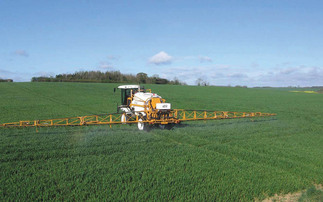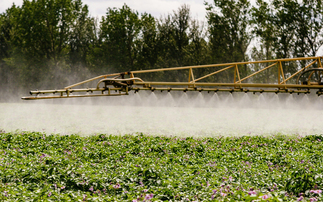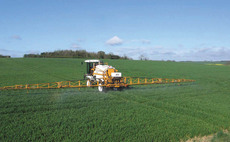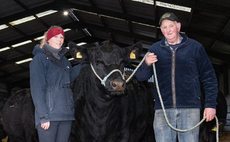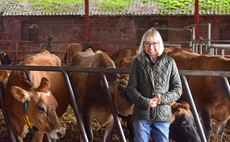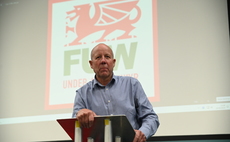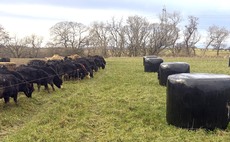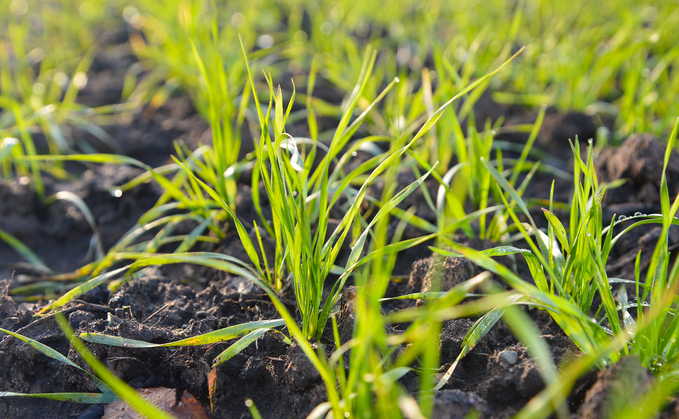
Seeing a clear yield benefit from applying placement phosphate fertiliser in winter wheat over two consecutive years has given Tom Jewers, of G.D. Jewers and Son, the confidence to potentially expand its use across all 190 hectares of winter wheat this season.
After a few years experimenting with starter fertilisers in spring crops, Tom, who farms 385ha at Rattlesden in mid-Suffolk and is also host to the Hutchinsons Helix East demonstration farm, first tried placement phosphate fertiliser in winter wheat during 2021/22. A tramline trial in a field of KWS Extase first wheat was direct drilled on September 30 with the farm's Weaving GD.
The field was predominantly clay loam soil and most of it was untreated, but two tramlines received different placement fertiliser products: 7kg/ha of Primary-P for one, and 10kg/ha of Crystal Green for the other.
Tom says: "We saw a clear visual response in terms of crop establishment in autumn 2021, which is not something we had seen previously with placement fertilisers in spring crops."
Yield responses
Yield responses over the untreated control (10.29 tonnes/ha) were similar for both products that harvest, at 0.6t/ha and 0.8t/ha respectively.
Following this promising result, Tom extended the use of placement fertiliser the following year to 150ha in total. He received some funding to support this via the Landscape Enterprise Networks project to help offset any potential costs, such as the depletion of soil indices (see panel below).
He also conducted another trial within Helix, this time applying 7kg/ha of Primary-P across most of another field of Gleam second wheat, direct drilled on October 14. One tramline was left untreated, while a biological phosphate liberator product was applied to another.
Initial analysis of the combine yield data from this harvest indicates a clear benefit of up to 2t/ha in the Primary-P treated field over the untreated tramline, with distinct differences visible on the yield map.
"It is only provisional combine yield data which needs to be validated, but it is really quite promising," says Tom.
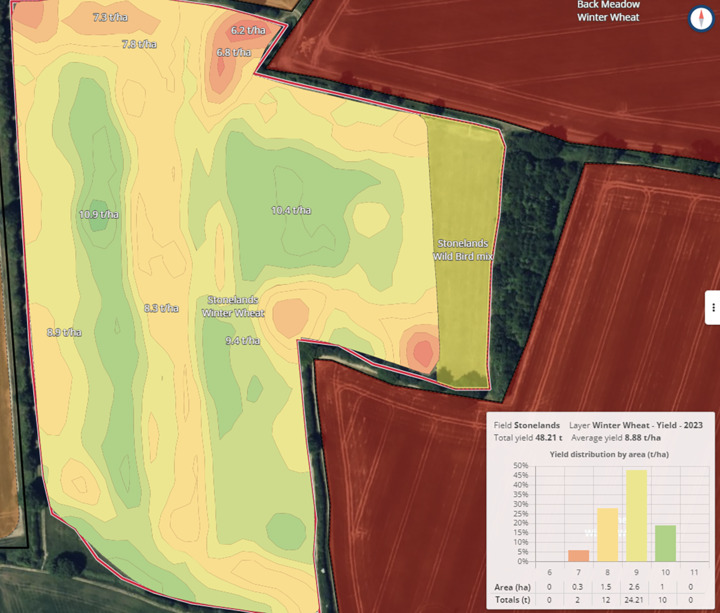
Further trials
Rob Jewers, Hutchinsons fertiliser and crop nutrition specialist, says similar placement fertiliser trials conducted on other farms in the Helix network have also shown generally good yield responses in recent years, albeit with some variability between sites.
Rob believes the application of placement fertilisers offers growers an effective way of reducing total phosphate use; something that has clear financial and environmental benefits, and is being increasingly supported by water companies (see panel).
Historically, like many farms, Tom applied triple superphosphate (TSP) to maintain and build the soil index. However, sampling shows most soils are at a relatively high level. It is therefore hoped that using much smaller amounts of targeted phosphate fertiliser will stimulate early root growth and allow crops to better utilise more of what is already in the soil.
Tom says: "It definitely seems like the right approach to me. We are applying 90 per cent less phosphate compared with previously, when we might have used 150kg/ha of TSP every couple of years to maintain and build soil indices, so there is a benefit both in pure cost terms, but it also helps water quality."
He acknowledges placement fertilisers are only designed to kick-start crop rooting and allow crops to more efficiently ‘mine' what is in the soil throughout the rest of the season, so regular soil testing is being used to monitor any depletion of soil indices over time.
Efficient nutrient cycling
Rob says the farm's focus on building soil health by introducing cover crops and switching to direct drilling several years ago is helping soils cycle nutrients more efficiently, which means more phosphate should be available to crops rather than remaining locked in the soil.
Tom recognises the need for suitable equipment to apply placement fertiliser with seed, and says his Weaving GD drill came kitted out to do this.
However, the machine only has one granular applicator, and given considerably higher slug pressure this autumn, he worries this may need to be used to apply slug pellets with seed, rather than the starter fertiliser.
He is therefore looking at adding a liquid applicator for this autumn, which gives the option of applying liquid versions of placement fertilisers plus other nutrients, such as magnesium and nitrogen - as ammonium sulphate - in spring, and also citric acid.
"On our high pH soils, many of the things we are looking at doing are aimed at acidifying the soil's rhizosphere to make nutrients more available in the rooting zone," he says.
The liquid applicator would also be fitted with a peristaltic pump, which would allow it to be used for applying compost extracts in the future - something he is investigating after setting up a Johnson-Su bioreactor this summer.
Funding available
Protecting and enhancing the health of watercourses and ground water is a key priority for water companies such as Anglian Water, which is just one of several companies offering support for farmers to reduce the risks to raw water quality within their catchments.
Part of this support is their annual Farm Innovation Grant, first launched in 2021, which aims to support and develop innovative solutions to local raw water quality challenges in priority catchments across the region.
Anglian Water catchment advisor Gary Hodgetts says: "Depending on the catchment, those raw water quality challenges could be pesticides, nitrates, phosphates and/or soil loss. Any application which links to reducing raw water quality risks will be assessed."
Up to £7,500 per holding is available and, unlike other grant schemes, there is no specific list of options that qualify. However, applications are judged against certain criteria: funds requested versus farmer funding, location and connectivity to a raw drinking water source, potential benefits and learnings, and the likely risk reduction.
Successful applications have previously included funding towards growing Smart Beet to reduce clopyralid use, a low disturbance subsoiler, a fertiliser spreader with section control, and the development of robotic weeding technology. Second-hand kit is also eligible if this presents good value for money while not inhibiting delivery.
More info
The application period opens on October 2, 2023, and closes on November 12, 2023. For more information visit https://www.ricardo.com/FIG2023
Anglian Water is also one of several organisations supporting the Landscape Enterprise Networks (LENs) project (https://landscapeenterprisenetworks.com/). LENs works with farmers, agronomists, merchants and others to find nature-based solutions for improving water quality, reducing flood risk, increasing biodiversity, and sequestering carbon, with particular focus on supporting regenerative farming practices.
Farmers in England can also seek advice and support for measures that protect water quality via their local Catchment Sensitive Farming officer.










